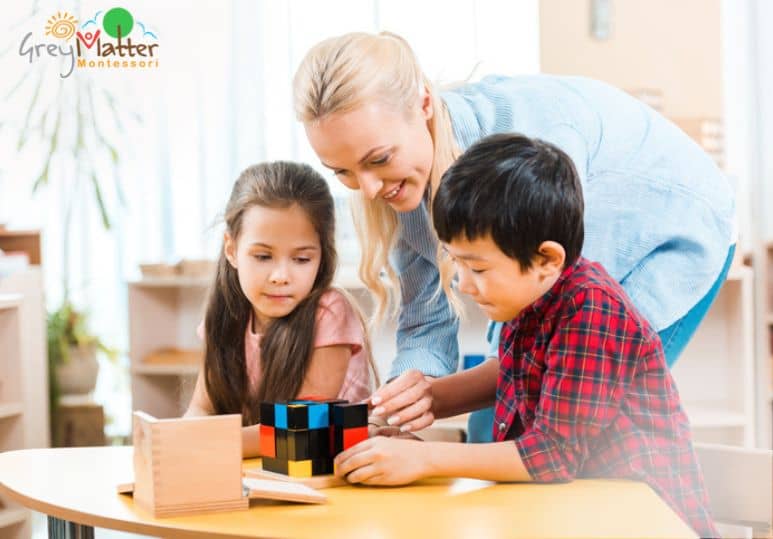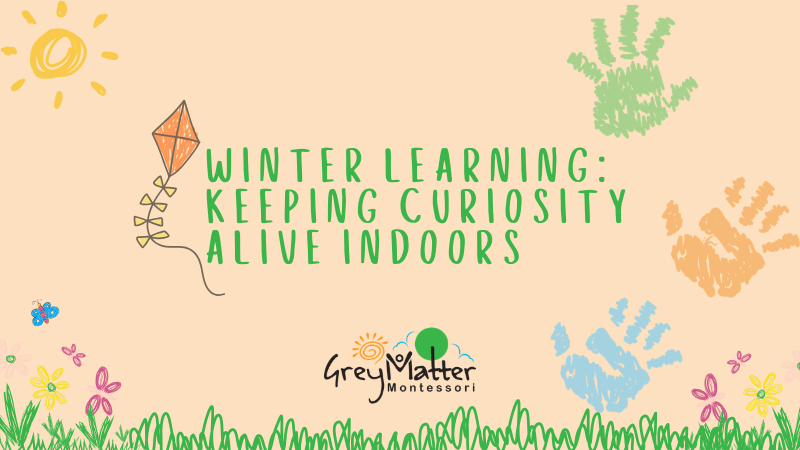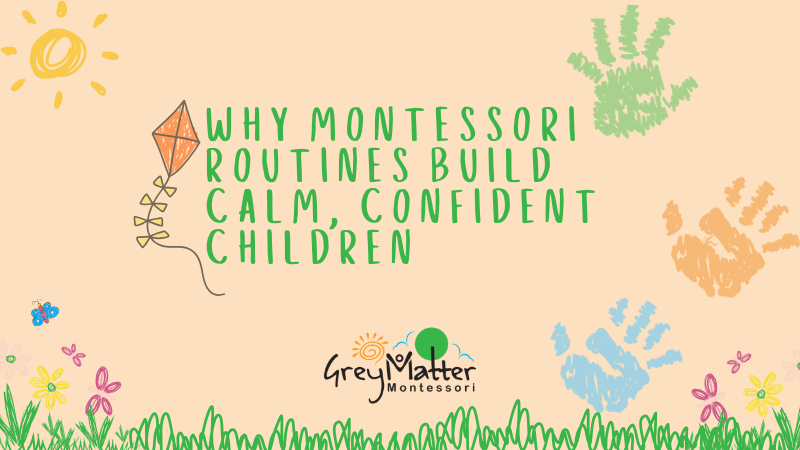Social Skills And Montessori
The Montessori method places a strong emphasis on practical life skills. These are skills that are essential for everyday living, such as dressing oneself, preparing food, and cleaning up. Children in Montessori classrooms are given the opportunity to practice these skills in a safe and supportive environment. By mastering these skills, children develop confidence and independence, which are essential for developing social skills.
Social Interaction
One of the key components of the Montessori method is its focus on social interaction. Preschool children in Montessori classrooms are encouraged to work in groups and to engage in cooperative activities. These activities help children learn to interact with others, share, take turns, and work together towards a common goal. Through these activities, children learn the importance of teamwork and collaboration, which are essential for building positive relationships later in life.
Mixed-Age Classrooms
Mixed-age preschool and kindergarten classrooms are an effective way to develop social skills in children. In these classrooms, children of different ages and abilities learn and play together, creating a diverse and inclusive environment. The older children serve as mentors and role models, while the younger children learn from their peers. This fosters a sense of community and cooperation, as children learn to work together and respect each other's differences. Mixed-age classrooms also encourage children to develop leadership and communication skills, as they learn to navigate different social dynamics and interact with a variety of personalities. Ultimately, mixed-age classrooms provide a rich social environment that helps children develop the skills they need to succeed in school and beyond.
Communication
The Montessori method emphasizes the development of communication skills and a foundation for social skills. Children in Montessori classrooms are taught to listen actively, ask questions, and respond appropriately. They are also encouraged to express themselves through art, music, and other forms of creative expression. By developing effective communication skills, children are better able to express their thoughts and feelings and to understand the thoughts and feelings of others.
Respect
Respect and conflict resolution are key values in a Montessori classroom. Children in Montessori classrooms are taught to respect the feelings and opinions of others and to work towards finding a mutually beneficial solution when conflicts arise. This approach helps children learn to deal with conflict in a positive and constructive way, which is essential for building positive relationships later in life.
The Role Of Montessori Teachers
A unique component of the Montessori method is the role of the teacher. In a Montessori classroom, the teacher acts as a facilitator rather than a director. They guide children towards activities and experiences that will help them develop social skills, and they provide support and encouragement along the way. By building positive relationships with teachers, children learn to trust and respect adults, which helps them develop positive relationships with other adults later in life.
Studies show that skills developed in a Montessori classroom environment can carry your child through elementary, junior high, high school, and even into adulthood. By emphasizing practical life skills, social interaction, communication skills, and conflict resolution skills, children are better equipped to navigate the social world around them. The Montessori method provides children with the opportunity to learn through exploration and discovery and to develop the skills they need to succeed in life.
To learn more about the tuition and fees for the
Grey Matter Montessori preschool program, click here.
Life-Long Social Skills Are Built In The Montessori Preschool Classroom
The Montessori method is a proven approach to developing social skills in preschool children. By focusing on practical life skills, social interaction, communication, and conflict resolution, children are better equipped to navigate the social world around them. If you're looking for an educational approach that emphasizes your child's unique needs and abilities and promotes social development, a Montessori education may be right for your family.
If you are interested in learning more about your options for preschool programs and the benefits of a Montessori school, or for more information on Grey Matter Montessori preschool registration, contact us to book a time for a school tour at our NW Calgary location. We are accessible just off of Symons Valley Parkway in the NW community of Evanston. Call us for more info on our Calgary Montessori preschool programming at 587-707-4739.
If you are considering Grey Matter Montessori,
you are welcome to explore our campus with this virtual tour.
FAQ
Q: Is there a checklist of things my child must know before attending preschool?
A: At Grey Matter Montessori in Calgary, we value the differences that make each child unique. If your child is aged 3-6 they may be ready to begin to explore learning and we are ready to facilitate it. Learn more about exploring your child’s readiness for preschool here.
Q: Why do parents send their children to preschool?
A: Parents often send their children to preschool to give them opportunities to socialize with other children around their age and as a good way to prepare them for kindergarten and elementary school. It also gives parents an opportunity to learn more about their child and their learning style. For more insight, read Does My Child Really Need To Attend Preschool?.
Q: Is it worth sending my child to preschool?
A: When it comes to deciding whether it would be worthwhile to send your preschool-aged child to preschool depends on a number of factors. To know if your child is ready for preschool, there are questions that you need to ask that only you, as a parent, know the answer to.






